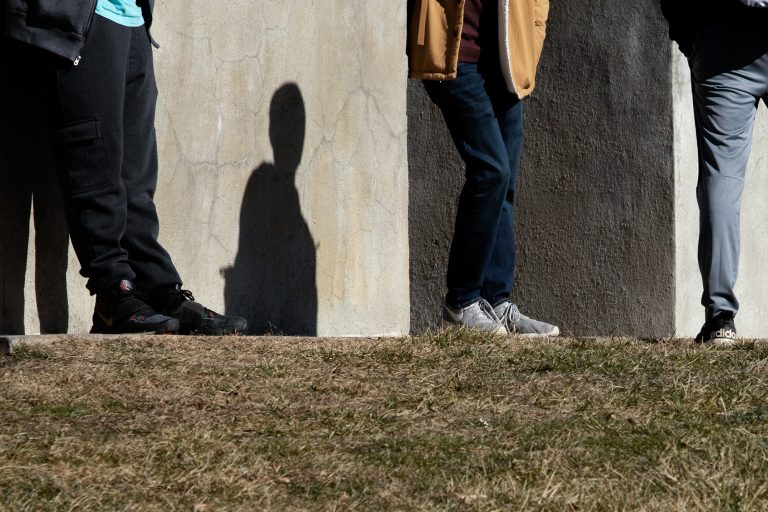Safety in numbers

By Maddy Stout
For graduate student Molly, the hardest part of moving to the United States was making friends. COVID-19 restrictions made it difficult to make connections. She needed someone to talk to.
(We’re using pseudonyms for all the students in this story to protect their privacy.)
Molly reached out to the MU Counseling Center for help. A therapist there suggested she try the International Student Support Group. She was nervous and worried that other students would judge her, but she was also excited about the possibility of meeting new people.
“At the end of the meeting, I clearly remember I felt so warm,” Molly said. “I felt like I’m not alone at Mizzou anymore.”
The International Student Support Group is one of 15 therapy groups and clinical skills classes at the Counseling Center where students can confront life issues and find support from their peers.
Group therapy is often the treatment of choice to address many emotional and relationship issues college students face, said Counseling Center Director Christine Even.
“It’s a great place to address your current concerns, connect with peers who are experiencing similar concerns, increase your self-awareness, and learn and try new behaviors in a safe and non-judgmental environment,” Even said.
The Counseling Center offers a wide array of groups and clinical skills classes to address the needs of Mizzou students. There is a Social Confidence Group for those struggling with social anxiety, a Grief and Loss Support Group, a People of Color Support Group, a Trans and Non-Binary Support Group, a Graduate/Nontraditional Student Support Group and anxiety skills classes, among many others.
Even plans to continue growing the group therapy and clinical skills class program in the coming years, starting with three new groups and classes for the spring semester.
Groups typically consist of up to 12 students and two group leaders, who are therapists at the MU Counseling Center. Groups meet weekly, usually for 60 or 90 minutes. There are no out-of-pocket fees for group therapy, which, like all services at the Counseling Center, is covered by the student activity fee.
Before enrolling in group therapy, a student schedules a one-on-one initial evaluation with a Counseling Center therapist, who assesses their current needs and what services are most appropriate. If group therapy is determined to be the best fit, the student is referred to the appropriate group or class and can often start immediately.
Students often have reservations about participating in group therapy, in part because of the stigma associated with mental health care. Counseling Center psychologist Russell Jackson tries to dispel those fears.
“If you have the flu, you don’t stop from going to the doctor, because you’re afraid of someone finding out that you have the flu,” Jackson said. “It’s kind of the same thing while you are having distress from family, from school, from friends, from a romantic partner.”
Some students also worry that their stories will be shared with others outside the group. Others are afraid they won’t have time to share their stories or that they will be judged by their peers.
“Doing group therapy with peers made me really nervous,” said Madeline, a member of the Healing From Family Challenges Group. “The first group was focusing on how everything is to remain confidential, and this is the setup of the group. It made me feel comfortable to share.”
The biggest benefit to group therapy is the validation students receive from their peers – something that is difficult to achieve in individual therapy.
“One of the most difficult things that I find with a lot of mental health concerns is a sense of isolation. This is a sense of, ‘Why am I going through this? I don’t know what to do,’” Jackson said. “There can be a really powerful and empowering sense of community that comes from group therapy. It can be reassuring to students to know they are going through this with other people.”
The groups and skills classes also help students connect with one another and offer each other mutual support. “Group therapy has helped me develop friendships,” said Olivia, a member of the International Student Support Group.
Taking the initial steps to receive help can feel overwhelming and scary, but the Counseling Center is dedicated to helping students find the best treatment for them.
“Trying group therapy is like a lot of things in life,” said Sterling, a member of Healing From Family Challenges group. “You just have to get past that initial wall just to get out of your comfort zone, and you’ll find it’s going to help you in the long run.”